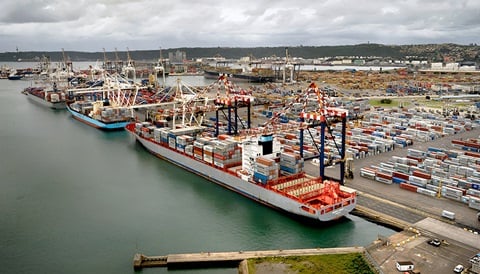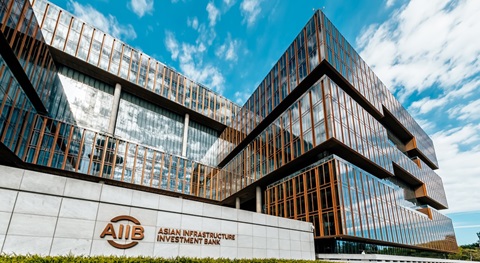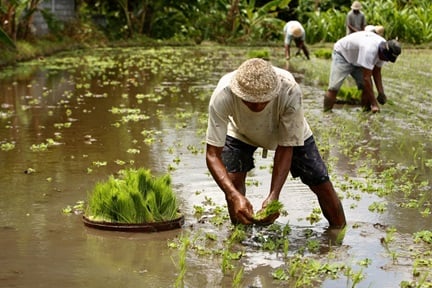Fintech in Africa
Innovation in the financial services sector in Africa has created new opportunities.
by Johan Burger

MOBILE MONEY WHETS MTN’S APPETITE IN AFRICA
Paul Gilbert, the editor of Connecting Africa, observes that while mobile money has a massive footprint in African countries such as Kenya, some other countries still have low mobile money penetration rates and have untapped potential for growth across the fintech sector. One confirming example is that of the 279.6 million users of MTN in Africa, of which only 46.4 million currently use mobile money (MoMo). This represents only about 16.5% of all MTN's mobile users.
MTN Group CEO Ralph Mupita sees a massive opportunity to grow MTN's fintech business. In the year 2020, MoMo added 11.7 million new users, generating a monthly average revenue per user (ARPU) of US$1.2. MTN's MoMo transactions in 2020 amounted to US$152 billion. MTN processed 12,400 transactions per minute, an increase of about 35% from the 9,200 per minute rate during 2019.
In Kenya, about 73% of the adult population use the mobile payment service. However, only 5.6% of Nigerians aged 15 and older have a mobile money account. For MTN Nigeria, out of its 76.5 million subscribers, only about 4.7 million (6%) are MoMo users, which is still a considerable increase to the 553,000 users of 2019.
In Ghana and Somalia, 39% and 37% respectively of the adult populations have a mobile money account. Ghana is MTN's biggest market for mobile money users, with about 10.6 million (44%) of its 24.4 million subscribers at the end of December 2020. Five out of MTN's 21 markets don't run mobile money services.
In South Africa, both MTN and Vodacom struggle to grow their mobile money services. That market is quite different from its African neighbours, with a much higher banked population than other sub-Saharan nations.
Fintech in Africa entails more than mobile money. Other emerging fintech markets include insurance, airtime lending and e-commerce. To exploit these opportunities, the capacity to scale will play a role.[1]
POINTS OF INTEREST
- Leveraging the significant growth in the diffusion of digital technology in Africa, mobile financial services are now the dominant form of digital payments. There are twice as many mobile money accounts as there are bank accounts in East Africa. Consumers increasingly expect ready access to a broader range of online offers and digital financial services. Banks are only too keen to step up and be considered a provider. When Safaricom launched M-Pesa in 2007, banks ignored the innovation and only in the last few years sought to regain lost market share.
- While Kenya has the highest proportion of mobile money users in its population, Nigeria holds the most significant potential for future growth. If Nigeria could jump from its current 5.6% of its population using mobile money to reach the same proportion of 76% as in Kenya, the absolute number of users would rocket from the current 11.2 million (assuming a population of 200 million) to 152 million. This staggering growth will act as a giant magnet for mobile money providers and fintechs from all sectors, including banks and telecommunications companies. It also explains the substantial rise in the number of applications and why banks now seek to enter this previously ignored sub-sector and market segment. They seemingly made the calculations and were impressed with the returns, which they should be. This phenomenon is not only valid for the Nigerian market but also many other countries in Africa. Should Ghana grow its number from the current 44% to 76%, this represents approximately eight million new users. Only 16.5% of MTN's 279.6 million users use mobile money, which amounts to 46.4 million users. If we assume growth to 76% is possible, this number will grow to 212.5 million, a potential increase of 166.1 million users. The business value of these various estimates of future market growth is self-evident.
MAKING PURCHASE IN US DOLLARS IN AFRICA
Equity Bank announced on 3 December 2020 its launch of a US Dollar-denominated Visa Debit Card in Tanzania. The card is reportedly the first of its kind in Tanzania and will allow customers looking to pay for goods and services in US dollars to do so without incurring service charges. Cardholders can shop at any outlet that accepts Visa, such as supermarkets, restaurants, hotels, hospitals, petrol stations and retail stores. This card provides convenience and affordability to those bank customers who travel overseas, make purchases online or trade using the dollar. The card will provide convenience for customers and stimulate the growth of e-commerce. The card provides a unique PayWave capability to allow customers to complete small transactions on the go.[2]
Visa is not the only institution reaching out to fintech institutions on the African continent. Mastercard recently partnered with telecoms operator MTN to enable millions of MTN MoMo customers in 16 African countries to shop and pay online with global merchants. MoMo customers will be able to use a Mastercard virtual payment solution linked to MTN MoMo wallets to unlock a host of opportunities and shop from their favourite international brands online while in their home countries or travelling abroad.
This collaboration comes as the Covid-19 pandemic led to record e-commerce and online shopping levels throughout Africa. Approximately 20-30% of this surge in e-commerce will remain a permanent feature of overall retail spending; consumers will use mobile devices to access these opportunities. By 2025, there will be 300 million more people using their devices to access internet services.
MTN customers with a Mastercard virtual payment solution linked to their MoMo wallets can shop on global platforms regardless of whether they have a bank account.[3]
MTN and Mastercard first launched the digital payment solution in 2018 for MoMo customers. MTN will extend the virtual payment solution offering throughout its fintech footprint. Initially designed to facilitate the transfer of cash between mobile users, MTN's MoMo offering is now much broader and includes loans, insurance, remittances and payments.[4]
Africa's e-commerce ecosystem lacks suitable payment solutions to meet the demand for seamless transactions worldwide. The recently announced collaboration between PayPal and Flutterwave will allow global PayPal users to use Flutterwave's platform to pay African merchants. Currently, SMEs and freelancers face numerous challenges from the highly fragmented and complex payment and banking infrastructure across Africa. Many African consumers and businesses are unable to tap the massive potential of cross-border e-commerce. This agreement promises to support these users and connect them with more than 377 million PayPal account holders globally.
Research firm Statista reported the total value of e-commerce in Africa as US$16.5 billion in 2017, with the potential to reach US$29 billion by 2022. This growth potential will reportedly "provide many opportunities for SMEs and freelancers worldwide, subsequently increasing Africa's share of global trade."
According to Flutterwave's CEO, Olugbenga Agboola, they are keen to offer PayPal's integrated services to businesses on the continent. The collaboration will create a seamless digital payment system for Africa's business communities, allow them to transact with international consumers and expand their business operations to reach new markets where PayPal is embedded.[5]
POINT OF INTEREST
- We see the recent trend for partnerships among the likes of Visa and Mastercard with institutions in Africa. This development has the potential to improve payment options and market reach for all concerned, including consumers. We now also see collaboration between new players such as Flutterwave and PayPal. This trend should contribute to an increase in the market value of e-commerce. The market is expected to grow from US$16.5 billion in 2017 to US$29 billion in 2022. This phenomenon will also lead to potential growth in e-commerce platforms doing their utmost to tap this lucrative market.
SUPPORT FOR A STATE BANK FOR SOUTH AFRICA
South Africa's President Cyril Ramaphosa recently expressed his support for a state bank. His point of view was that a small number of banks controlled South Africa's banking sector, and the country needed more options for access to debt. He believed there is space for a state bank, referring to the Land Bank and the Industrial Development Corporation (IDC) as state banks. He supported his point of view on the need to found a state bank in South Africa on the many state banks in developing countries.
The new state bank could administer the R200 billion (±US$13.6 billion) Covid-19 funds the South African government asked the country's banks to administer. Ramaphosa accused the banking sector of being risk-averse and claimed the state bank could be less so. The President insisted the proposed bank would follow the best governance principles.
The Minister of Finance, Tito Mboweni, supported the idea of a state bank in South Africa. Mboweni saw such a bank as "a potential positive disruptor to our financial system. I support its establishment."
It was not clear whether the South African government would push for a new entity to run a state bank or whether it would piggyback on an existing institution such as the Land Bank or Post Bank.[6]
POINT OF INTEREST
- One could question the rationale behind the South African government's intention to develop a state bank. As both the President and Minister of Finance pointed out, the nation already has state banks such as the Land Bank and the Post Bank. However, both are poorly run, and the Land Bank required a significant government cash injection. Based on the general condition of the larger SOEs in the country, it is clear that the government is incapable of running any efficiently and effectively. It would be best for the country and its taxpayers if the government refrains from creating new state-owned enterprises until it can prove itself. Its record in this regard does not engender confidence, to put it mildly.
THE FINANCIAL SERVICES INDUSTRY IN EAST AFRICA CONSOLIDATES
Kenya's KCB currently operates in six countries, i.e., Kenya, Uganda, Tanzania, Rwanda, Burundi and South Sudan, with a representative office in Ethiopia. KCB recently signed a deal with London-based Atlas Mara to buy stakes in its banking units in Rwanda and Tanzania, only months after the Equity Bank Group called off its plan to acquire four Atlas Mara banking subsidiaries.
KCB will acquire 62.06% of Banque Populaire du Rwanda Plc (BPR) and a 100% stake in the African Banking Corporation Tanzania (BancABC). The deal is part of KCB's strategy to explore new growth opportunities while investing in and maximising returns from the Group's existing businesses. KCB believed the agreement would strengthen its leadership position and position it to play a more significant role in driving East Africa's financial inclusion agenda.
In Rwanda, KCB will double its market share to become the second-largest bank in the country and solidify its leadership position. In Tanzania, the subsequent merger of BancABC with KCB Bank Tanzania, a KCB Group subsidiary, will integrate KCB Tanzania's strong retail and corporate banking franchise with BancABC's retail and commercial banking operations. The merger is expected to rank in the top ten in the industry.[7]
POINT OF INTEREST
- We have not seen the last of major M&As in Africa. Many banks have strategic pan-African aspirations. When Equity Bank from Kenya decided against acquiring the banks in the Atlas Mara stable, KCB moved in to snap up the portfolio for itself. Scale is critical when you target the bottom end of the market and may even be necessary when targeting the broader retail market. One does wonder whether Equity will eventually rue the decision to withdraw from its acquisition strategy in Rwanda and the eastern DRC.
Additional Readings
Anon. 2021. Ramaphosa and Mboweni push for new state bank in South Africa. Business Tech. 1 March 2021. Available at https://businesstech.co.za/news/banking/471720/ramaphosa-and-mboweni-push-for-new-state-bank-in-south-africa/. Accessed 19 March 2021.
Anon. 2021.Mastercard and MTN in e-commerce mobile payments partnership. Connecting Africa. 16 February 2021. Available at http://www.connectingafrica.com/document.asp?doc_id=767409. Accessed 19 March 2021.
Anyanzwa, J. 2020. KCB signs deal to buy two banks in Rwanda, Tanzania. The East African. 27 November 2020. Available at https://www.theeastafrican.co.ke/tea/business/kcb-signs-deal-to-buy-two-banks-in-rwanda-tanzania-3210588. Accessed 19 March 2021.
Delport, J. 2021. Flutterwave partners with Paypal to transform eCommerce payments for African merchants. IT News Africa. 18 March 2021. Available at https://www.itnewsafrica.com/2021/03/flutterwave-partners-with-paypal-to-transform-ecommerce-payments-for-african-merchants/. Accessed 19 March 2021.
Delport, J. 2021. Mastercard partners with MTN to enable MoMo customers to transact globally. IT News Africa. 16 February 2021. Available at https://www.itnewsafrica.com/2021/02/mastercard-partners-with-mtn-to-enable-momo-customers-to-transact-globally/. Accessed 19 March 2021.
Gilbert, P. 2021. MTN sees more room to grow fintech and mobile money. Connecting Africa. 18 March 2021. Available at http://www.connectingafrica.com/author.asp?section_id=761&doc_id=768159. Accessed 19 March 2021.
Mirondo, R. 2020. Equity Bank launches US dollar visa debit card in Tanzania. The Citizen. 3 December 2020. Available at https://www.thecitizen.co.tz/tanzania/news/business/equity-bank-launches-us-dollar-visa-debit-card-in-tanzania-3217676. Accessed 19 March 2021.
References







